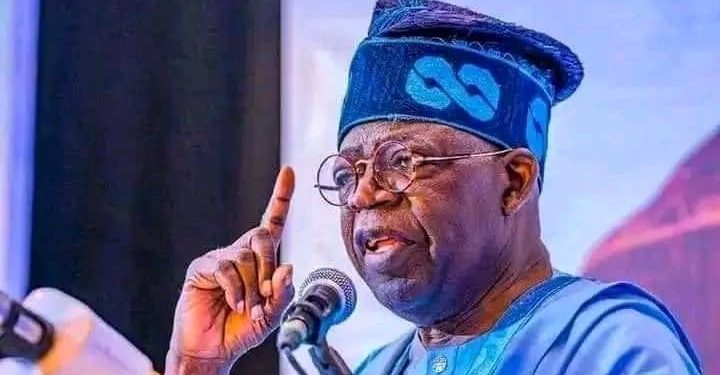Nigerians has reacted to the growth of the country’s economy which is showing renewed momentum following rebasing of the Gross Domestic Product (GDP), with the growth of 3.13 percent in the first quarter of 2025.
According to the National Bureau of Statistics (NBS) report released on Monday, showcased Nigeria’s GDP grew by 3.13 percent in real terms in the first quarter of 2025, an improvement over the 2.27 percent recorded in the first quarter of 2024.
The growth was largely driven by services and industry, with strong performances from sectors such as telecommunications, real estate, trade, crop production, and oil and gas. The GDP rebasing, announced by the Statistician-General of the Federation, Adeyemi Adeniran, adjusted the base year from 2010 to 2019 to provide a more accurate and current reflection of Nigeria’s economic structure.
The GDP rebasing, announced by the Statistician-General of the Federation, Adeyemi Adeniran, adjusted the base year from 2010 to 2019 to provide a more accurate and current reflection of Nigeria’s economic structure.
As a result of this revision, the country’s GDP at current prices reached ₦372.8 trillion (approximately $243 billion) in 2024.
For the new base year, 2019, GDP was estimated at ₦205.09 trillion, which represents a 41.1 percent increase compared to the previously used base year, while this increase is slightly lower than the 59.5 percent growth recorded in the 2014 rebasing exercise. The updated figures show consistent nominal GDP growth across recent years. In 2020, the total output stood at ₦213.64 trillion; it rose to ₦243.30 trillion in 2021, ₦274.23 trillion in 2022, ₦314.02 trillion in 2023, and finally reached ₦372.82 trillion in 2024.
The updated figures show consistent nominal GDP growth across recent years. In 2020, the total output stood at ₦213.64 trillion; it rose to ₦243.30 trillion in 2021, ₦274.23 trillion in 2022, ₦314.02 trillion in 2023, and finally reached ₦372.82 trillion in 2024.
In real terms, Nigeria’s GDP contracted by 6.96 percent in 2020 due to the global economic downturn caused by the COVID-19 pandemic. The economy rebounded slowly with 0.95 percent growth in 2021, followed by stronger growth rates of 4.32 percent in 2022, 3.04 percent in 2023, and 3.38 percent in 2024.
The rebased data revealed significant shifts in sectoral contributions to GDP. Crop production was largest contributor at 17.58 percent, followed closely by trade at 17.42 percent.
Real estate emerged as the third-largest sector with 10.78 percent, displacing crude petroleum and natural gas, which contributed 5.85 percent. Telecoms also posted a strong performance with 6.78 percent contribution to the GDP.
Services sector remained the largest broad category, contributing 53.09 percent to GDP in 2019, a slight increase from 52.60 percent previously recorded. Agriculture followed with a 25.83 percent share, while industries accounted for 21.08 percent.
Nigerians on X reacted, Naija Dentist with the handle @Kayode_MK said, “GDP rebasing is a standard and necessary economic exercise; it helps reflect structural changes in the economy and captures previously unmeasured sectors like digital services, fintech, and informal trade.
He added, “The 41.7% nominal increase after switching the base year to 2019 improves data accuracy, attracts investor confidence, and provides better fiscal planning tools. “However, rebasing does not magically improve living standards. It can mask fundamental weaknesses if misread. Like rising inequality, weak productivity, and a fragile revenue base.
“However, rebasing does not magically improve living standards. It can mask fundamental weaknesses if misread. Like rising inequality, weak productivity, and a fragile revenue base.
“A larger GDP with poor revenue mobilization only widens the gap between potential and reality. Growth on paper must translate to growth in pockets. Otherwise, it’s statistical optimism without human impact”, he said.
Monseur Eno @i_am_eno said, “Na statistics we go chop? What they are saying is that you should forget the good years of the PDP and start measuring growth from the APC days starting from Buharis misrule”.
Ebi Bomodi @bomodiebi said, “If we take the the rebased figures for 2022, which is about N274t. Using the the valuation of N450:$1, we will have a rebased GDP of $608b. This figure seems incredulous. What this means if the Tinubu admin had not floated the Naira this would have been our GDP. Per Capita=$2,700”. A.A Possible, MBA @AAProm042 said, “The decline in industry says so much about the high MPR. No real growth can occur if the interest rates remain this high. I also wonder if CBN would take the risk of lowering rate cos it will definitely affect the target inflation rate of 15%”.
A.A Possible, MBA @AAProm042 said, “The decline in industry says so much about the high MPR. No real growth can occur if the interest rates remain this high. I also wonder if CBN would take the risk of lowering rate cos it will definitely affect the target inflation rate of 15%”.
Bamide @Bamide_Felix said, “You guy know what you’re doing. Traditionally, it’s often estimated in dollars but you guys tried to hide the contraction in the economy by projecting it in Naira – as if Naira has been the same since 2014…lol”.
Francis Osayomi @Fosayomi said, “The rebased GDP figures reflect a more accurate and ambitious Nigerian economy. With a 41.7% nominal increase and steady real growth from 2021 to 2024, the data backs the reforms. Nigeria is moving forward and this time, the numbers dey gree. #PBAT”.
Meanwhile, report has it that the new figures positioned the country as the fourth-largest economy in Africa as of 2024.
Now, Nigeria ranks behind Egypt, South Africa, and Algeria in dollar terms, with Egypt’s GDP estimated at approximately $398 billion, South Africa at $373 billion, and Algeria at $266 billion, while the giant of Africa’s GDP stood at $243 billion.












